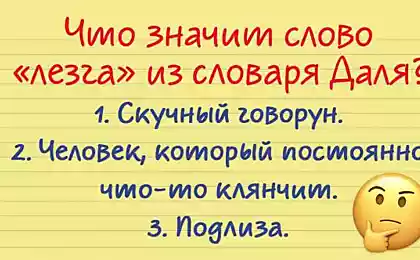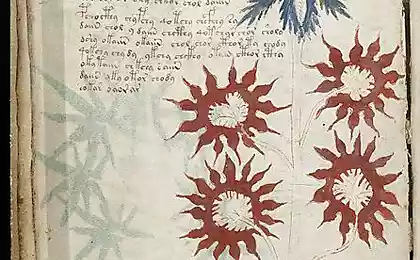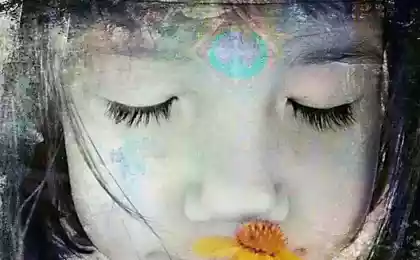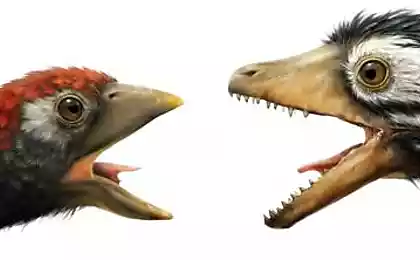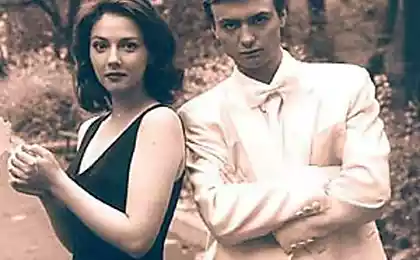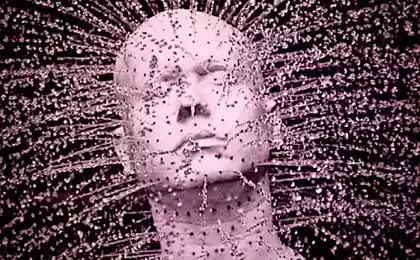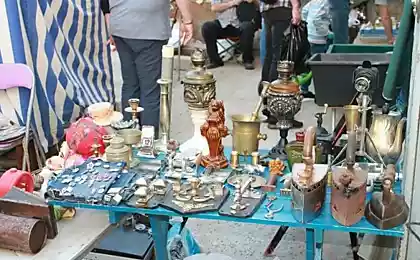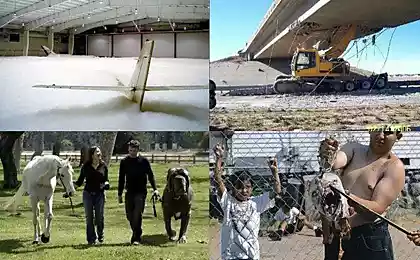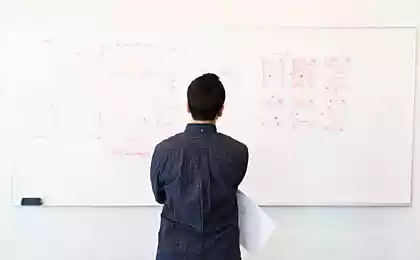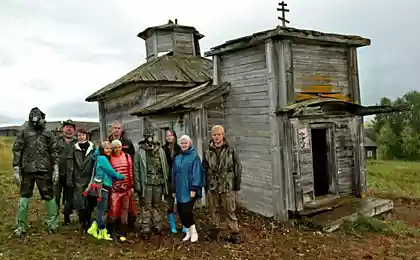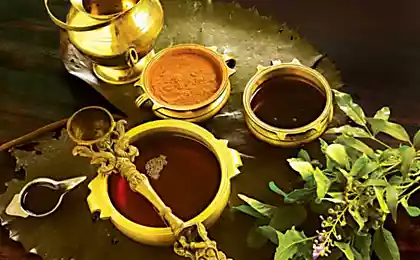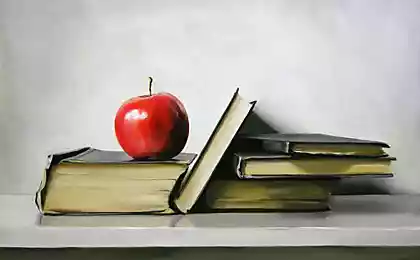194
Old words from the Dahl dictionary, which will mix worse than modern humorists
Old words and their meanings are sometimes surprising. We are used to the idea that a word can sound in one context, but in fact it should be very different. This simple collection of outdated expressions will definitely amuse everyone. Words are here. only the funniest.

Here, for example, who among us has not heard the word “fuzz”? Only in the imagination immediately appears the picture of a luxuriously dressed lady. That's what they call "fur-fur." In the beginning, the word was used completely. context. To sulk, to sulk, to be offended, to be excessively capricious. If someone blows his cheeks out of anger, you can ask him: “Why did he fuss?” Togo and look at the bad mood as a hand removes.

Would you like to call your fat, furry cat Monsieur "Girandole"? Although the word "girandole" seems to speak for itself, but do not believe the suspiciously simple interpretation. It turns out that Girandole was once called a large and beautiful candle holder, designed for many candles. Well, the same candelabra, just French-style.
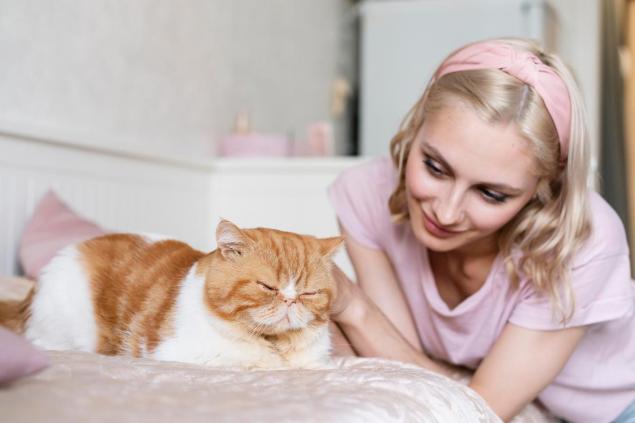
Do You Know How to Explain the Word “Off”? Is that the name of a rooster that sings too loud in the morning? "The bird is completely dead!" This joke sounds plausible, but it's not. Okokovet - an outdated option to stiffen, very much freeze. “Fingers in the cold are completely knotted, now I will look into the cafe and warm up for a cup of tea.”
And you can snort a cup of tea. Or not just tea, but something warmer and stronger. So we're used to hearing that word in this way. humorously. Although in fact, snoring means coughing, wheezing. The word comes from a sound association with action.

There is an interesting old word “television”. But it does not apply to calves or television. And the meaning of this word is extremely simple - to talk, to sharpen, to scratch with tongues, to crack, to conduct balasses, to tremble, to carry nonsense. Agree, even an outdated version looks as organically as possible in the list of its synonyms.
What does the word “elban” mean? Yes, it is "elban", and not what I was able to read initially. So, in ancient times, so called a high hill, hill, elevation. Unexpected, right? So does "shankoosh." Wrong, not too cowardly a person, but a simple ant. Very good. dialect.
By the way, there are several similar words, but they also have totally differentas it may seem at first glance. "Clean up," "look up," "crumble." Without a hitch, explaining the meaning of each word is very difficult. So let's not delay. To be frightened, to be frightened, to be quiet, to calm down (the duck duck duck ducked - quieted down). And to sprinkle is just an outdated version of a more modern “sprinkle”.
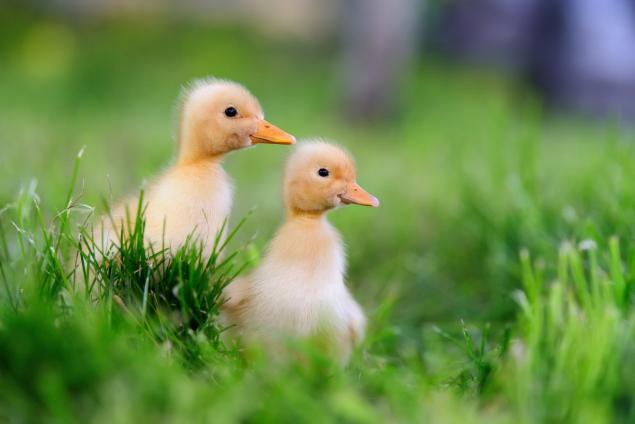
For some, the word “Chechosta” may be vaguely similar to something Czech, and someone has no idea what it is about. In fact, this word means washing, cleaning, morning water procedures. Yes, every morning before work or school, we are all sure to "Chezerland".
But "bubbling" is not exactly about exceeding any of its capabilities. For example, now you can say: “Vitka ball in the neighbor’s window bubbled!” Miracle did not break it, tomboy! It sounds interesting, but this word means the spread of any rumors, false news. From the word "zabobon", which once meant nonsense, nonsense, lies, rumors.

Outdated words and their meaning now There is another quite popular word that used to sound quite different. Instead of “mumming,” they used to say “music.” In some dialects, the word “museum” meant mouth, so a person who mispronounced the text was simply “music.”

What do you think of these old words and their meaning? What was fun and what was. totally incomprehensible? Share in the comments dialect words from your region. Surprise subscribers with their unusual meanings.

Here, for example, who among us has not heard the word “fuzz”? Only in the imagination immediately appears the picture of a luxuriously dressed lady. That's what they call "fur-fur." In the beginning, the word was used completely. context. To sulk, to sulk, to be offended, to be excessively capricious. If someone blows his cheeks out of anger, you can ask him: “Why did he fuss?” Togo and look at the bad mood as a hand removes.

Would you like to call your fat, furry cat Monsieur "Girandole"? Although the word "girandole" seems to speak for itself, but do not believe the suspiciously simple interpretation. It turns out that Girandole was once called a large and beautiful candle holder, designed for many candles. Well, the same candelabra, just French-style.

Do You Know How to Explain the Word “Off”? Is that the name of a rooster that sings too loud in the morning? "The bird is completely dead!" This joke sounds plausible, but it's not. Okokovet - an outdated option to stiffen, very much freeze. “Fingers in the cold are completely knotted, now I will look into the cafe and warm up for a cup of tea.”
And you can snort a cup of tea. Or not just tea, but something warmer and stronger. So we're used to hearing that word in this way. humorously. Although in fact, snoring means coughing, wheezing. The word comes from a sound association with action.

There is an interesting old word “television”. But it does not apply to calves or television. And the meaning of this word is extremely simple - to talk, to sharpen, to scratch with tongues, to crack, to conduct balasses, to tremble, to carry nonsense. Agree, even an outdated version looks as organically as possible in the list of its synonyms.
What does the word “elban” mean? Yes, it is "elban", and not what I was able to read initially. So, in ancient times, so called a high hill, hill, elevation. Unexpected, right? So does "shankoosh." Wrong, not too cowardly a person, but a simple ant. Very good. dialect.
By the way, there are several similar words, but they also have totally differentas it may seem at first glance. "Clean up," "look up," "crumble." Without a hitch, explaining the meaning of each word is very difficult. So let's not delay. To be frightened, to be frightened, to be quiet, to calm down (the duck duck duck ducked - quieted down). And to sprinkle is just an outdated version of a more modern “sprinkle”.

For some, the word “Chechosta” may be vaguely similar to something Czech, and someone has no idea what it is about. In fact, this word means washing, cleaning, morning water procedures. Yes, every morning before work or school, we are all sure to "Chezerland".
But "bubbling" is not exactly about exceeding any of its capabilities. For example, now you can say: “Vitka ball in the neighbor’s window bubbled!” Miracle did not break it, tomboy! It sounds interesting, but this word means the spread of any rumors, false news. From the word "zabobon", which once meant nonsense, nonsense, lies, rumors.

Outdated words and their meaning now There is another quite popular word that used to sound quite different. Instead of “mumming,” they used to say “music.” In some dialects, the word “museum” meant mouth, so a person who mispronounced the text was simply “music.”

What do you think of these old words and their meaning? What was fun and what was. totally incomprehensible? Share in the comments dialect words from your region. Surprise subscribers with their unusual meanings.
Old words from the Dahl dictionary, which will mix worse than modern humorists
If there are no soap nuts in the house, I do not even approach the mountain of washing.
